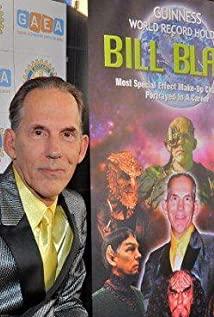Even today, there are still men (even women) who stubbornly believe that women are inferior physiologically (even in other areas). In the face of deep-rooted discrimination and prejudice, while rationally resisting for change, would you occasionally angrily think, "If only there was a real confrontation between men and women?"
It’s hard to imagine now that in the United States in 1973, tennis champion Biilie Jean King and 1940s tennis champion and senior Bobby Riggs really fought a "gender war" with over 30,000 spectators (so far It still maintains the highest record for the number of audiences at a tennis match), attracting 90 million TV viewers around the world. In 2017, this "battle" was remade into the movie "Battle of the sexes" (Battle of the sexes), which was released in the United States on September 29. Emma Stone played the tennis player who won 39 Grand Slam championships and later Billie Jean King, pioneer of the LGBT affirmative movement.
The film began when King and tennis tournament contractor Gladys Heldman walked into a "men only" club and demanded equal pay from Jack Kramer, the founder, first executive officer, and senior tennis player of the United States Tennis Association. "Why do male tennis players get eight times the prize money of female players?" King asked. Jack responded that because the men's game would attract more spectators, King and Heldman immediately responded that "the women's finals and the men's finals sold the same number of tickets", "the same tickets, the same prize money."
In this dispute, Kramer threatened to disqualify King from participating in the US Open. King was unwilling to be treated unfairly and organized a tour with Heldmen. Nine female tennis players including her signed a symbolic reward of $1. Participate. At this time, retired tennis champion Bobby Riggs, after years of gambling and the separation of the wealthy wife, made a fortune and proposed a "gender war" with King. At first, King rejected his proposal, but because another female tennis player Margaret Court challenged and lost the game, King eventually played and won.
A war that must be won
Now we know that a competition between individuals (King and Riggs) can never explain the strength of the group of "men" or "women" in a certain sport or in a certain field. King was clearly aware of this from the beginning. She thought that Riggs' invitation was just a public relations stunt, a performance for fame and fortune, and had nothing to do with serious sports competition, so she refused the invitation. However, after her competitor, the Australian female athlete Margaret Court, lost the game, she "had to" "represent the female athlete" to challenge. This "have to" is the biggest manifestation of women's weak position in power relations.
In the United States in the early days of the feminist movement, as in many places that still exist today, the majority of people held the notion that "women are inferior to men". In this case, women need to "prove themselves" to men and argue that "we should be respected". This "need to prove" is precisely the best proof of the unequal status of women and the lack of attention and protection of women's rights.
From the beginning of the movie, King’s insistence on equal pay, to her "representing women", what we see is not the triumphant heart of a simple-minded female athlete, but a rational thinking to "change the mind." Bravery and persistence for purpose . Although both reasons will lead to the same result of "challenge", the difference in understanding distinguishes the two men's and women's tennis matches between Court and King and Riggs, namely: the former is a stress response to male rules. The latter represents the possibility of taking the initiative to change ideas .
While King is under tremendous pressure to prepare for the battle, what is the other protagonist Riggs doing? He and his team have planned a number of funny tennis matches with women "joking"-using a frying pan instead of a tennis racket for the game, wearing a skirt for the game, and so on. His relaxed and joking attitude made us realize that this war that women must take seriously otherwise it may bring serious consequences to the budding feminist movement is just a game or a joke for men in power . Not only did they dismiss it, but they also spared no effort to mock and belittle women's participation. If you have ever had a conceptual conflict with male chauvinists, this attitude must make you familiar.
An inner battle
Under the tennis court, Billie Jean King's inner conflict is no less intense than this highly anticipated battle between men and women. Film director Jonathan Dayton said in an interview: "Don't get me wrong, we love tennis. However, it is the love story that attracted us to make this movie."
The married King (King is Billie Jean's husband's last name) met her hair stylist Marilyn Barnett before and after the war and fell in love. On one side is the husband she loves and has a marriage vow, and on the other side is a new knowledge of her own sexual orientation and lover, King bears unspeakable pain. The screenwriter of the film, Simon Beaufoy, said that when she showed King the script, she often interrupted reading because of the pain of memories, especially the pain of betraying her husband. In reality, King's lover, Barnett, took King to court in 1981 for a maintenance dispute, which forced her to "come out", and then King lost all sponsors.
After coming out of the closet, King actively spoke for the LGBT community. In 2009, then US President Barack Obama awarded her the "Presidential Medal of Freedom" in recognition of her outstanding contributions to social progress and change. King also found his life partner after the divorce, Ilana Kloss, also a tennis player.
The traditional marriage of a man and a woman put King into a dilemma, and the exploration and awakening of herself finally liberated her . Through the presentation of the intimate emotional relationship between King and Barnett, the film shows the audience the "hopeful and joyful" love he has just started. Although this free new love has gone through hardships, it points to an outlet that liberates humanity.
Focusing on the emotional relationship of homosexuals, especially lesbians, the film itself is also fighting a difficult battle. Although "Moonlight Boy", which realized transgender subjects last year, won an Oscar for best film, it is still difficult to see LGBTQ groups on the big screen, especially in mainstream Hollywood movies. According to data from the Gay Media Monitoring Agency (GLAAD), compared with 2015, the LGBTQ community’s performance in Hollywood blockbusters has hardly increased last year . It is worth noting that in the only performance of LGBTQ groups, the image of gay men accounted for more than 80% .
The war continues
It’s also worth mentioning that "War of the Genders" has a remarkable display of 70s fashion, but unfortunately, in addition to the fashion in the film giving us the feeling of reappearing the old days, the retrogressive United States and the present In China, it is not difficult to perceive the projection of the reality in the film today.
Slate, a well-known American online magazine, published an article "The Moment of the 2016 U.S. Election in the "War of Genders"," listing the similarities between the two "wars":
● Competition between well-prepared and capable women and clowns;
● Women are often questioned about their physical condition, ability, and speed inferior to men;
● The man who participated in the war was a grandmaster of grandstanding;
● She is under the tremendous pressure of "fighting for all women";
●Men view their sexist remarks as "jokes";
● Some male reporters think that "feminism" is a struggle against men;
● Some patriarchs declare that he respects women because he "has a wife."
When this article was published, the scandal of Hollywood tycoon Harvey Weinstein had not yet been exposed ( Hollywood tycoon sexual assault incident: when is the "chilling effect" of sexual violence ). Surprisingly but not surprisingly, many male artists once again defended themselves by discriminating against and insulting women by "having wives" and "having daughters."
Not only that, but many details of the war can easily be found in today's world. This is in sharp contrast to the film’s inspiring ending-has the status of women really improved? How much has it improved?
While fully expressing the inequality of gender power, "War of Gender" did not lose its entertaining nature because of the serious topics it discussed. The film's narrative is compact and the climax is repeated. It is a highly watchable feature film and I recommend everyone to watch it. Especially for viewers who don't know much about the history of American sports, you will surely admire this dramatic game just like me. Before the advent of the Internet, when TV still enjoyed a lofty right to speak, King's victory was undoubtedly an inspiration to women and the feminist movement.
In the end, I watched this movie with my husband. We saw the footage of King fighting for equal pay together, and he laughed and said that this is simply the most suitable movie for us to watch together. There are not many people in the cinema, and the only audience seems to be couples/couples, ranging in age from college students to elderly people. There was a lot of laughter during the movie, and everyone seemed very satisfied after the end. So... this film is suitable for watching with your partner at the same time. Let's educate your (male) partner about feminism in an entertaining way! :)
View more about Battle of the Sexes reviews











